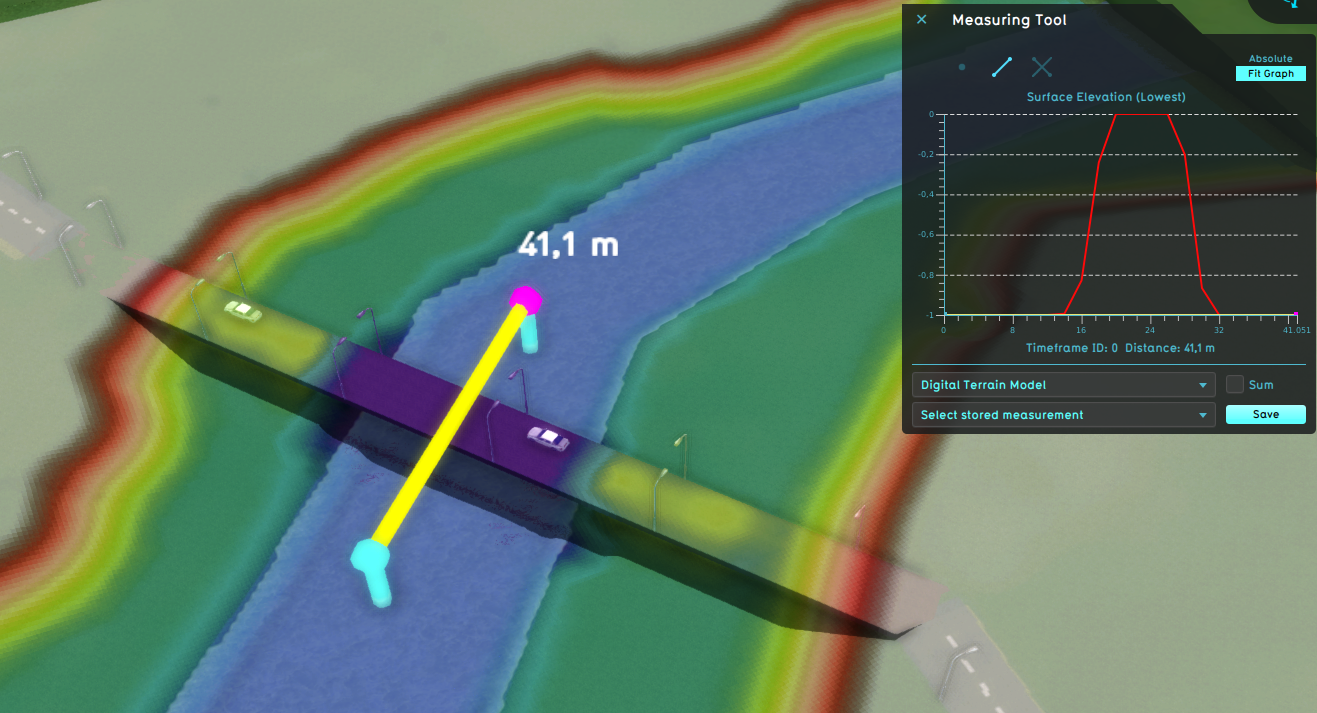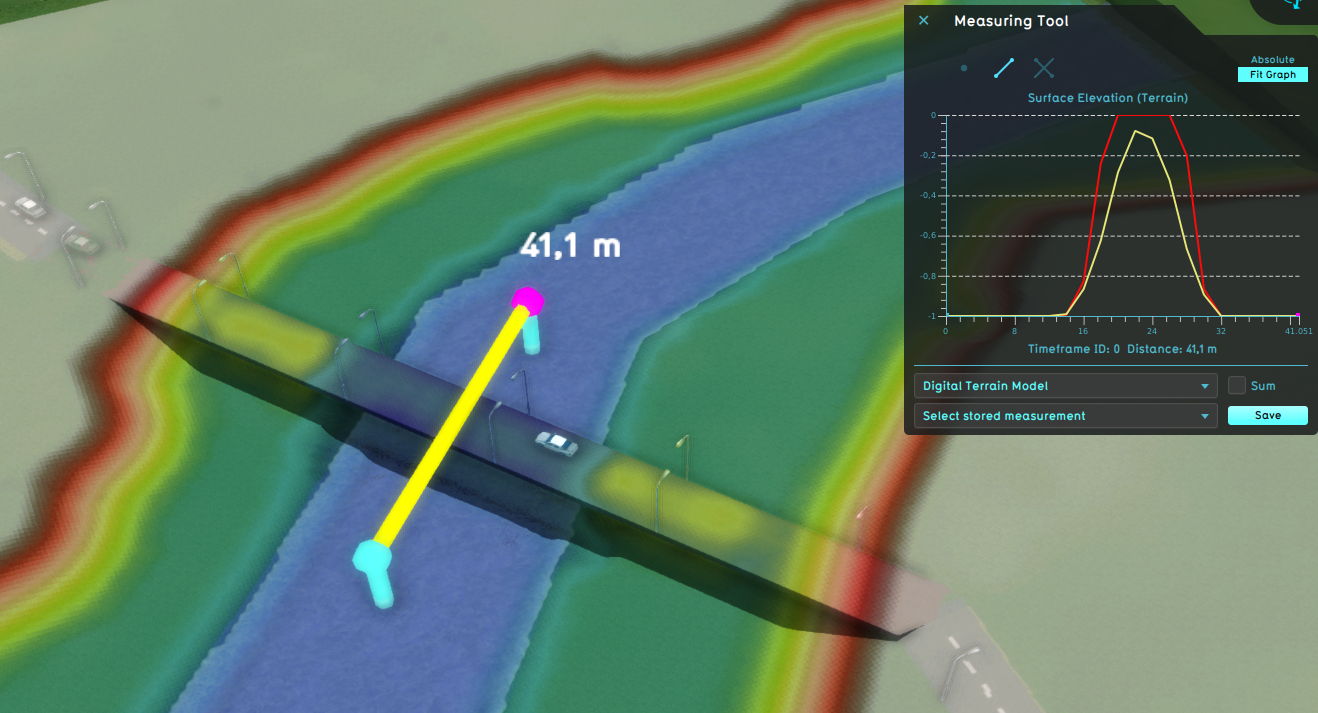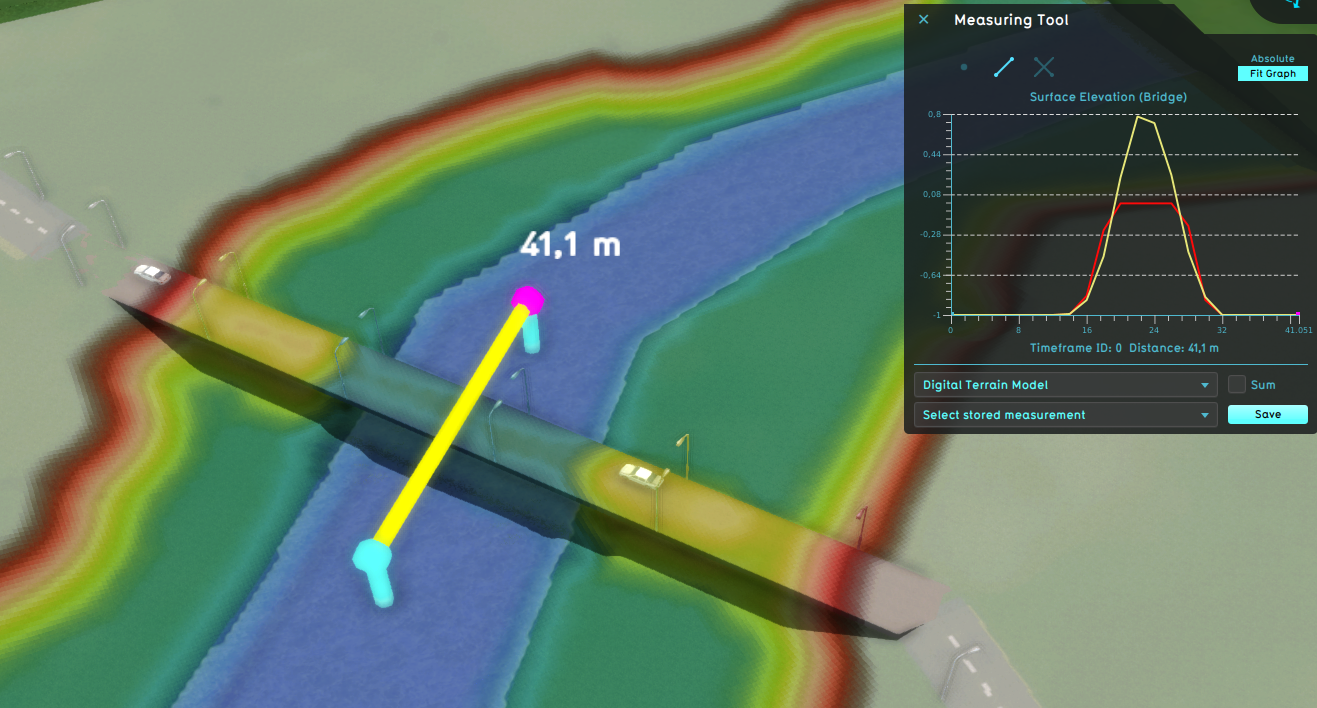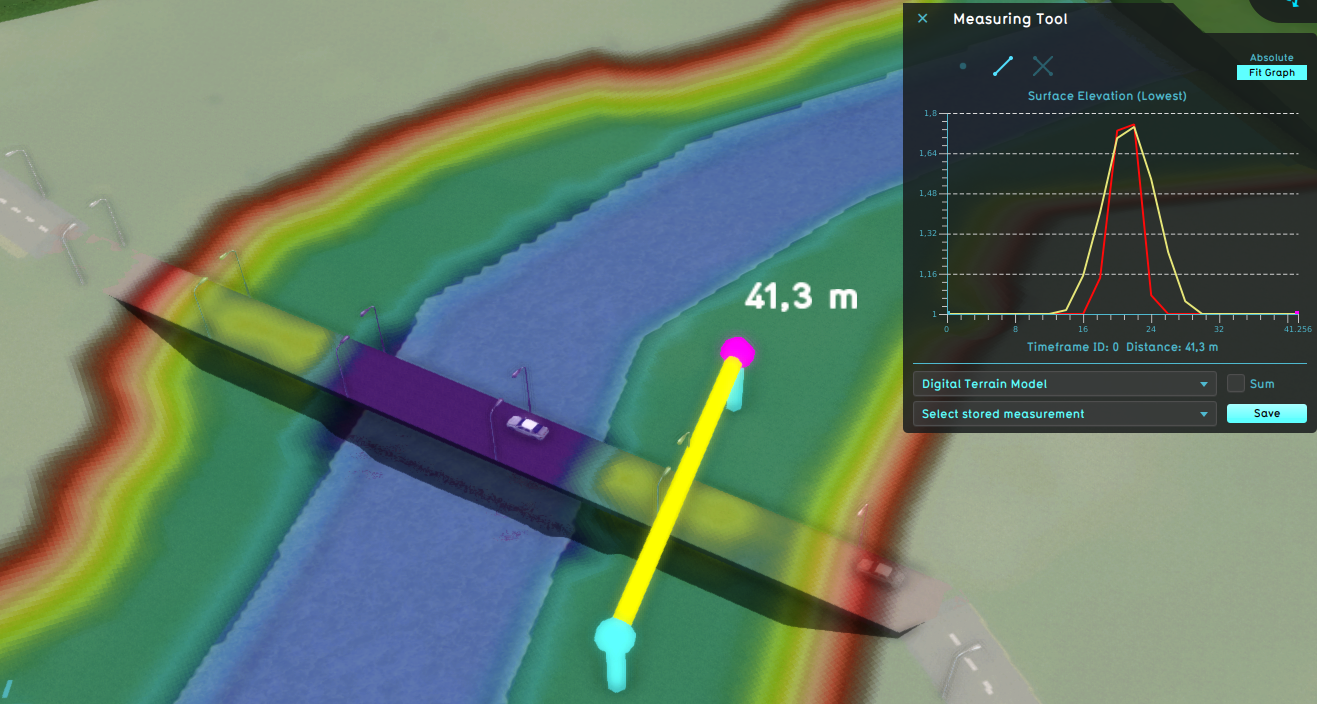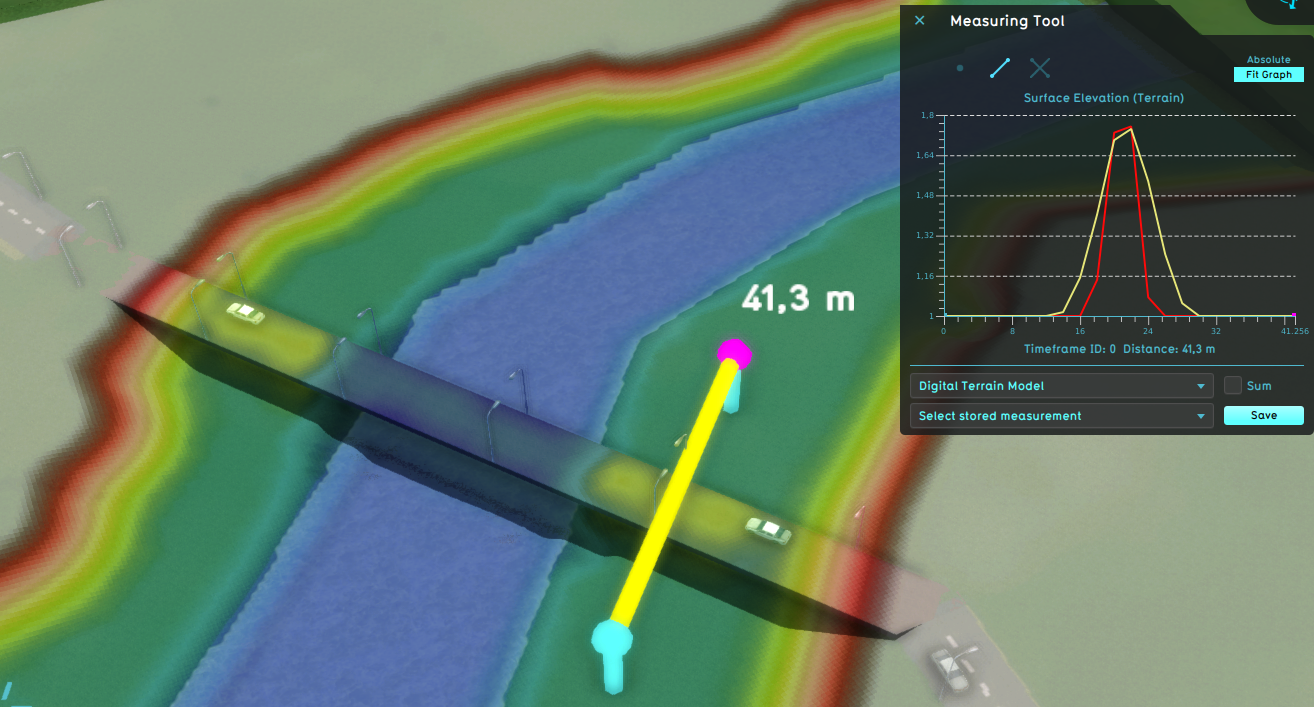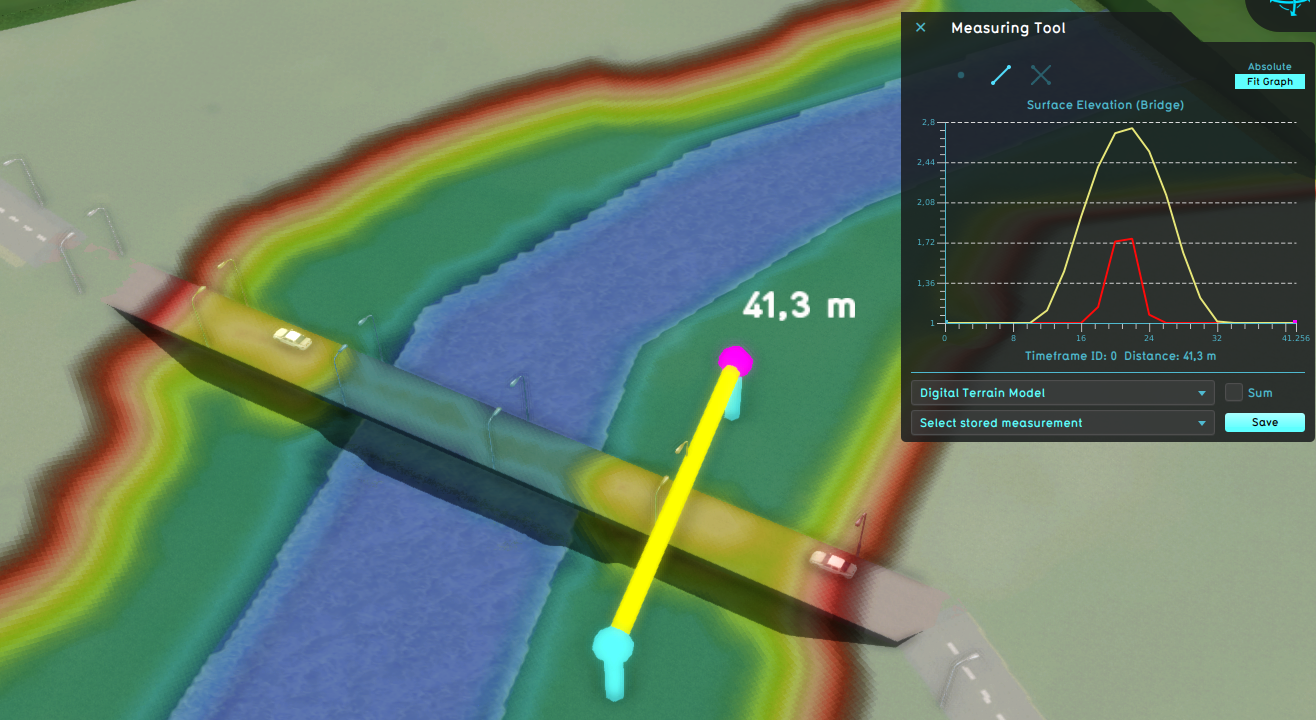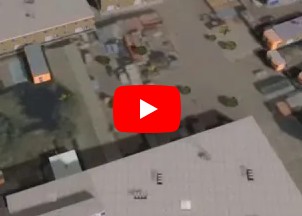Bridge elevation (Water Overlay)
Revision as of 10:57, 28 February 2024 by Frank@tygron.nl (talk | contribs)
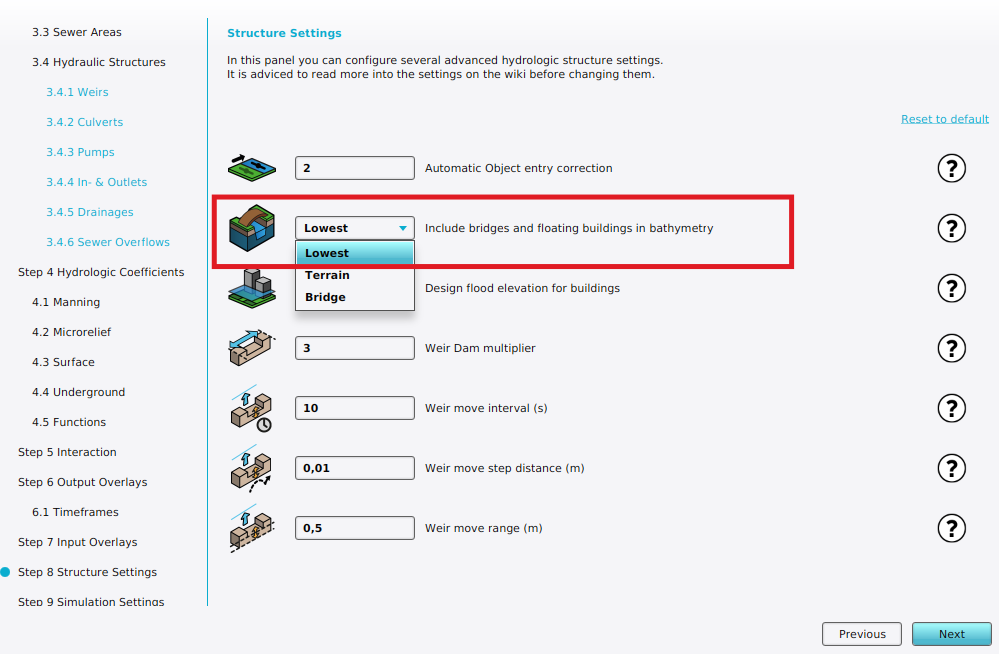
Bridge elevation can be configured in Structure Settings step of a Water Overlay wizard.
| Icon | Attribute | Unit | Range | Description | Default value |
|---|---|---|---|---|---|
| |
BRIDGE_ELEVATION | nominal | 0 to 2 | Specifies the mode by which bridges are include in the elevation model, used for the water calculations. | Lowest |
The water model uses an elevation model for the surface flow calculations. This setting defines how to include bridges in this elevation model:
| 0. | Lowest: The lowest elevation point from the terrain elevation (DTM) below bridge is used, when the terrain is water. Otherwise the behavior is similar to Terrain. |
| 1. | Terrain: Under bridges, the terrain elevation (DTM) is used, otherwise the limited surface elevation (DSM) is used. Water can flow under the bridge according to the terrain elevation. |
| 2. | Bridge : Use bridge deck as elevation. Bridges and floating buildings are included in the DEM, blocking water flow. |
Example
The following images show the effect of the different options on both land and water under a bridge. The elevation data is set up such that it is slightly raised under the bridge, as often happens; the bridge deck itself is included in the terrain elevation data, or its support pillars, both on land and water. As can be seen below, the Lowest option selects the lowest terrain value under the bridge for water, but not on land.
Notes
- When using Bridge mode, it is still possible to model the flow from one side of a bridge to the other by using a Culvert.
- The surface elevation (DSM) always limits the height of the buildings to the design flood elevation.
